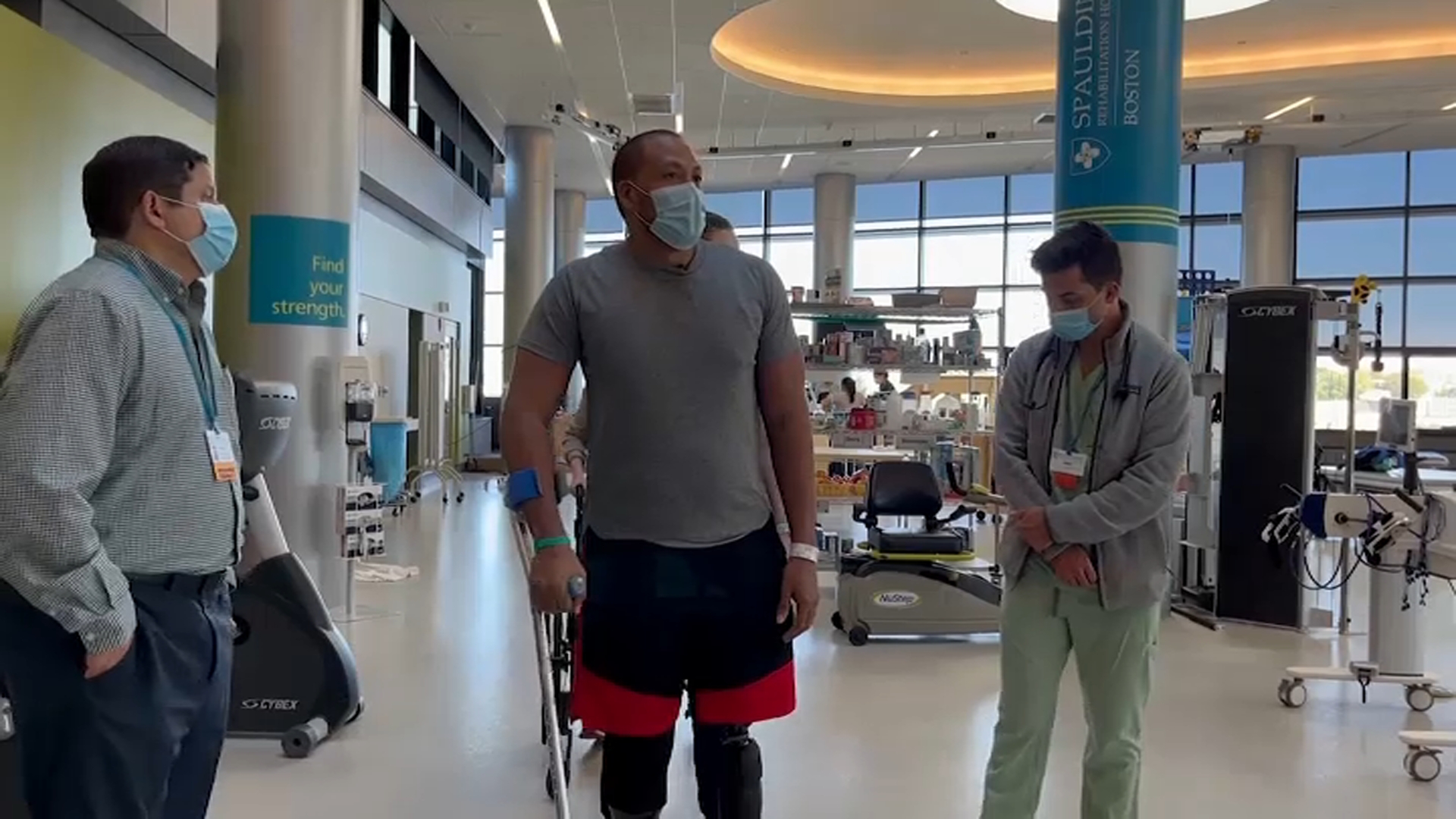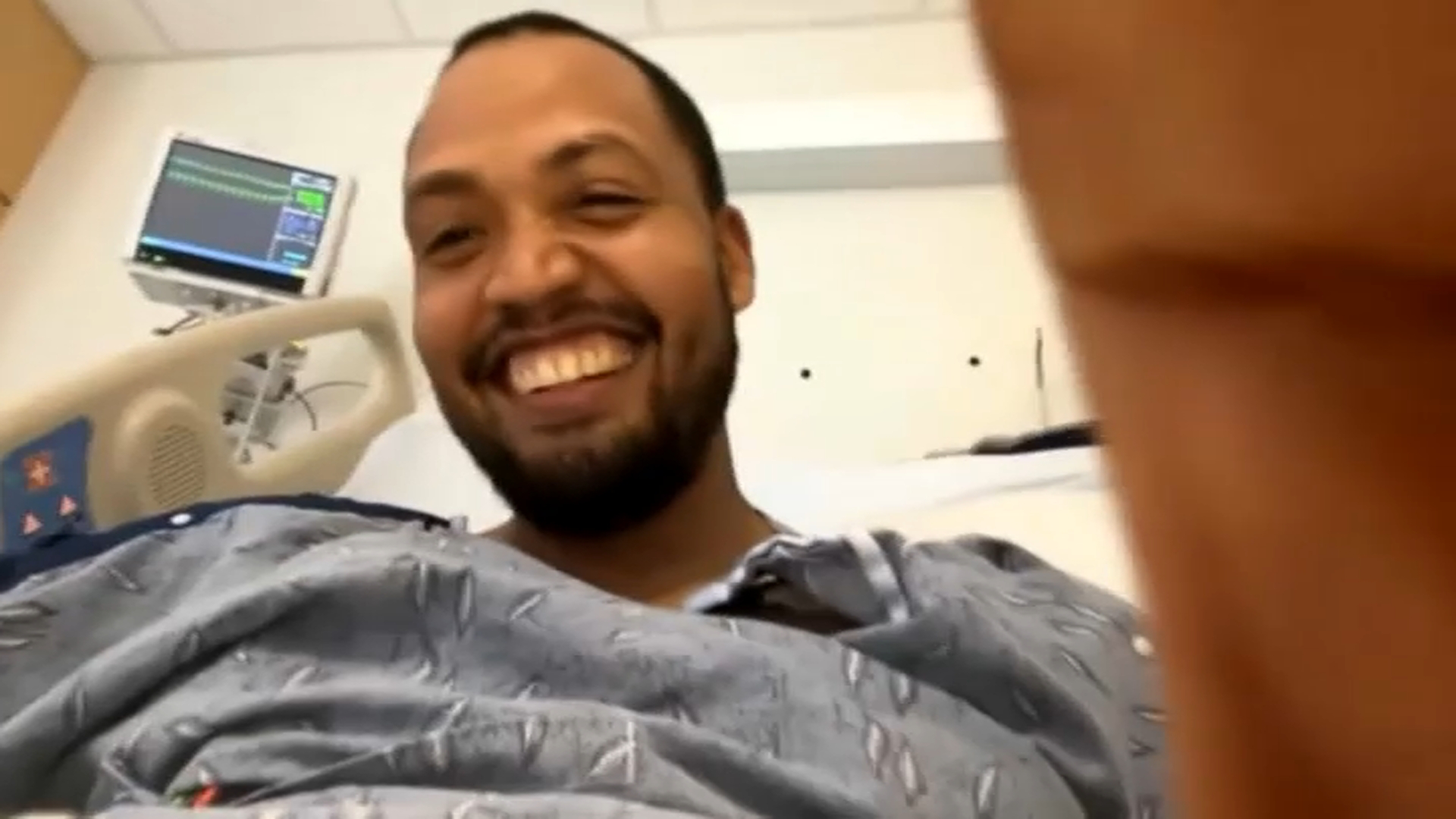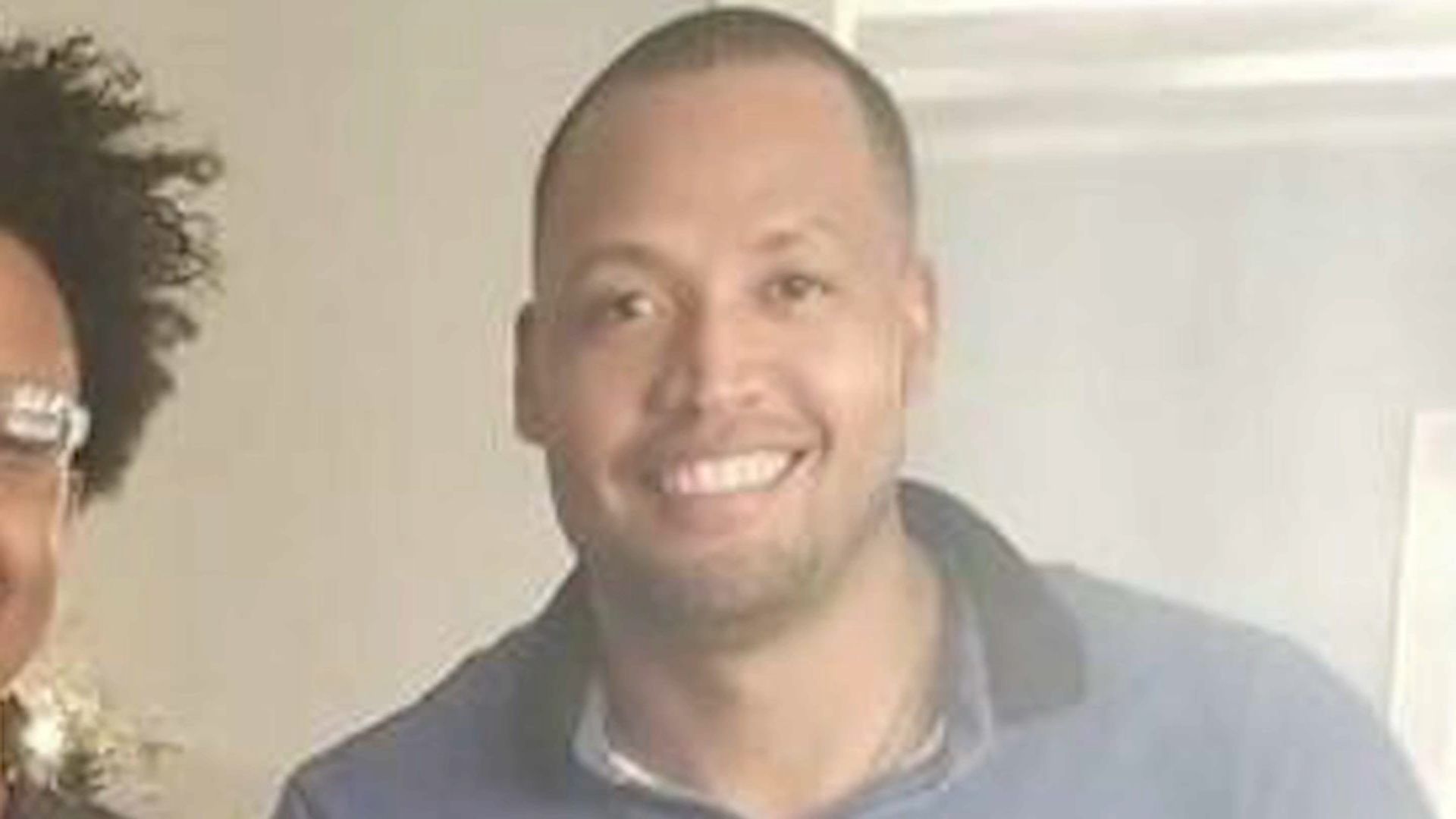Almost a year after a demolition worker was trapped in a collapsed building in Boston, he reunited with the paramedics who helped save his life.
Thirty-five-year-old Wilson Ortega was working on the demolition of the old Edison Power Plant in South Boston last May when part of the structure collapsed. He was pinned under a 30-foot section of catwalk flooring for three hours as emergency responders worked to move debris and free him.
Ortega said he remembers a construction supervisor was with him before paramedics arrived.
"He spoke to me softly and he put his hand on my head and told me everything was going to be OK and to stay calm," he said in Spanish.
Get New England news, weather forecasts and entertainment stories to your inbox. Sign up for NECN newsletters.
Mark Welch was one of the employees who ran to help Ortega and other workers injured in the collapse. He said he drew from his military training and his experience at the Boston Marathon bombings. He was among soldiers who finished the Tough Ruck, marching the 26.2-mile marathon route, about half an hour before the bombs exploded near the finish line. They ran to help people who were hurt.
"You can't really think about what you need to do, you just have to act on it, because at the end of that act is somebody else's life, and that's more important than your own, especially when it comes to what we have been trained to do," Welch said.
"There was no easy way to get him out. There was a lot of debris, a lot of concrete," said Greg Bond, one of the paramedics who responded to the site. "From the moment the wall came down, unfortunately, his legs were non-salvageable."
More on Wilson Ortega
Paramedic Jason Yutkins said the language barrier was a hurdle, but they did their best to relieve his pain and assure Ortega he would make it through this.
"Just body language and showing compassion, every human can see that and that's all I wanted to display to him was that I wasn't going to leave him, that he was going to get out there," Yutkins said. "He was going to see his family and I was going to see it through until the end."
Ortega had both legs amputated at a hospital. Over the past 10 months, he has learned how to walk again with prosthetic legs. Wednesday, he was reunited with the first responders who helped him at a Red Cross event honoring their heroism.
"Actually seeing him walking was incredible, and hearing that he was able to see his son, and then have an 8-month-old at home, that's amazing," said Yutkins. "That's what we try to get to every time that these people that we rescue are able to go home to their family, to be with their loved ones, because that's all that really matters."
"It's why I got into it in the first place," said Bond. "This is what we do. Not every call, obviously, is that dramatic — has that good of an outcome, frankly. You lose a lot more than you save. But every now and again, we can make a difference and save someone's life."
"Maybe for them, it was just their job, but when a person like me finds themselves in a situation, you see how big their job is," Ortega said in Spanish. "It's not simply a job, it's about saving a life. God places a person in those difficult moments, and it's not just the job, it's the dedication, the delivery and the love that makes that job your life saver."




